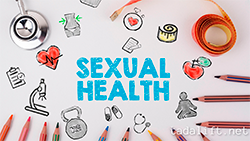According to the statistical evidence gathered worldwide, at least 25% of all people lead an inactive lifestyle. The recent clinical observations conducted in 28 EU member countries demonstrates that almost 19% of all volunteers involved in the research tend to spend eight hours per day sitting. It is also reported that a range of diverse health conditions, such as diabetes, different cardiovascular disorders, and obesity, are directly associated with a lack of physical activity.
The said lifestyle also contributes to the development of prolonged hormone fluctuations and depressive disorders in both men and women.
Sedentary work in the context of potential erectile disorders
However, in addition to the generally negative impact provided by prolonged involvement in mandatory sedentary work, the said mode of life significantly raises the risks of developing diverse health disorders associated with problems in the sexual sphere.
- Firstly, such a lifestyle increases the risks of hypertension, which is one of the leading causes in the development of sexual dysfunction in men.

- Secondly, excessive sitting leads to the impairment of circulation in lower regions of the body, providing a serious negative impact on pelvic organs, especially over the long term.
- Thirdly, an inactive lifestyle leads to the general decrease of physiological parameters determining stamina and physical performance. As a result, such individuals may experience occasional troubles associated with erectile dysfunction.
- Finally, men leading sedentary life tend to suffer from associated illnesses, which increase the risks of ED, such as diabetes, hypertension, neurological disorders, bacterial and viral diseases associated with decreased immune functions, etc.
In addition, the lack of physical activity contributes to the gradual decrease in the synthesis of testosterone – one of the most essential male hormones. The lack of testosterone leads to the notable decrease of sexual desire, fatigue, weak erections, decreased sexual performance, increased irritability, etc.

